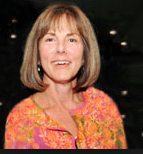Forgiveness, Giving Back, Goodness, Gratitude, Hanging In There
GRATITUDE: LOST AND FOUND

Many years ago, I found myself at Disneyland under duress. Yeah, yeah, it’s the Happiest Place on Earth and I’m fortunate enough to live an hour away from it and it always made my son so happy when we went but this was just one of those rainy, dark Saturdays when the Happiest Place on MY Earth was the couch in the living room, a book and the dogs on my lap and “Dirty Dancing” on TV.
Woe to Princess Jasmine if she so much as winked at me.
The ticket line was moving slowly and to warm up, I stuck my hands into the pocket of my sweatshirt. Huh? I removed my hand which was now holding one hundred dollars in twenties. Can you even begin to imagine my surprise and delight? Yes, it was still cold and drizzling steadily and yes, the dogs were probably on the couch and Johnny Castle wasn’t letting anyone put Baby in a corner without me, but I found a hundred bucks in my pocket!
Did that money make the lines go faster or the food taste better or the music of the Main Street Electrical Parade any less grating? No. But I felt lucky. Happy. And incredibly grateful for my carelessness or forgetfulness or the reverse-pick-pocketing that had stashed the cash there in the first place.
This is what it was like being there for my mother during her eight-year slog toward her final exit
I was always close to my mother; she’d retired to live near me and her newest grandson and she and I were thrilled that she was in town AND in her own apartment. We were close and loved each other fiercely but we were not best friends. We were mother and daughter and it was great.
We talked once a day, never hanging up the phone without blowing kisses; we saw each other once or twice on weekends and if I needed an emergency baby sitter, she was at the house in 20 minutes. So when at age 81 she had a minor stroke, I was a little more conscientious about seeing her, a little less inclined to ask her for favors.
Then I started to going with her to her doctor’s appointments although she forbade me to talk. Then I was “allowed” to fill out the forms for her and to make us both laugh, I would always ask her loudly in the crowded waiting rooms: “Number 9 is ‘when was your last period?’” and she’d answer: “1979.” Or I’d run through a list of recreational drugs and ask her if she’d used any during the past 7 days.
After she took the door off a Ford Escort, I called her insurance agent and asked him to tell my mother that they were rescinding her coverage. She was terrified about losing her car/independence but with the help of friends and therapy, she accepted it. We even browsed for motorized scooters for her to tool around in; we both knew she’d never get one but we both needed that fantasy.
When I hired the very nice woman to drive her 5 mornings a week, my funny little mother was more furious with me than she’d ever been. She fired Maria on a daily basis, and then Maria would call me crying, and then my mother call me crying, and then my husband would come home to find me crying.
Then Maria started staying all day. Then we hired a woman to live-in. Then we added a hospital bed. Then Hospice care.
If I’ve made that sound easy, I’ve done it wrong.
These were slow, scary, painful, heartbreaking, annoying, aggravating, time-sucking, enervating, depressing and horrible, horrible times for both of us. When she would ask me “Am I ever going to get better?” I’d gently but firmly tell her the truth, and then five minutes later she’d ask me again, with the same sad urgency she had before. And I’d have to answer again, knowing that I’d see tears stream down her cheeks as I spoke. During one lunch, she asked me this same question five time and five times, I had to break my mother’s heart.
On occasion she would relive a memory and not once was it a good one. My father was yelling at her and calling her stupid. Her mother was comparing her unfavorably to her cousin Joan. Her cousin Joan was making fun of her for not having the right clothes/home/husband.
Sometimes she was in pain. Sometimes she was furious that her life had come to this. Sometimes she was spacey. Sometimes she’d clutch my hand and look into my eyes with abject terror.
But every once in a while, we’d laugh long and loud. Every once in a while, I’d show her pictures of her newborn great-granddaughters and she’d beam. There was a YouTube video of diapered twin-boys having a very serious conversation in baby talk and we’d watch it and the years and the infirmity and indignity of her life would vanish.
The last big laugh we shared came a few months before her death. As I entered her apartment her caregiver said: “Don’t do this to yourself. Shirley is in a terrible mood. She scratched me. She cursed at me. She told me to leave her the fuck alone, so be kind to yourself. Turn around and go home.” I’d seen my mother in these moods of late and she was both unrecognizable and terrifying.
But I barged in. She glared daggers at me. I said: “I’m going to make you the happiest woman alive today” and she gritted her teeth and hissed: “I sincerely doubt that.”
I said: “I have great news. Your cousin Joan died yesterday.” And after a pause, she burst out laughing from deep in her belly and then made me show her the obituary to confirm it.
These are the memories and moments that fill my heart with gratitude. It’s one thing to laugh and love when times are good or at least normal. But when in a time when joy was so scarce, it was like finding a wad of twenties in my sweatshirt pocket.
The weather was still gloomy and the lines were still long and the food was still overpriced and tasteless, but hot damn, look what I found! How lucky is that?
